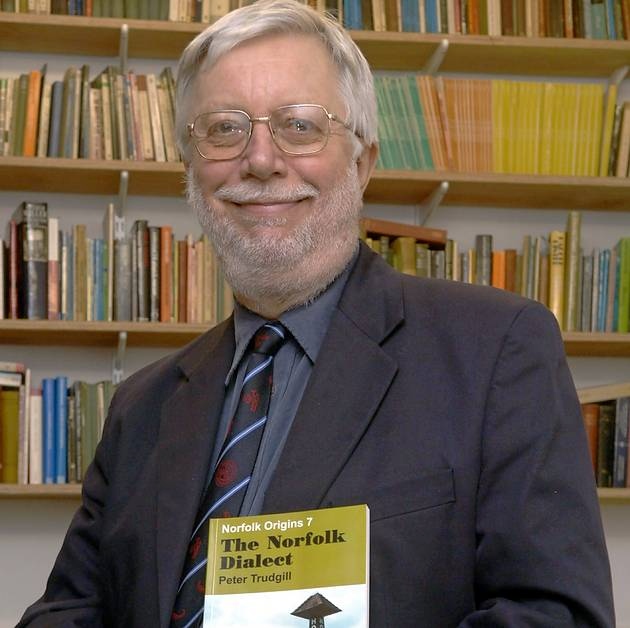Biography
Professor Peter Trudgill is Emeritus Professor of English Linguistics at Fribourg University, Honorary Professor of Sociolinguistics at the University of East Anglia, Adjunct Professor of Sociolinguistics, Agder University, Kristiansand, Norway, and Adjunct Professor in the Research Centre for Linguistic Typology at La Trobe University, Melbourne, Australia. From 1970 to 1986, he held the positions of Lecturer, Reader and Professor at Reading University.
He is widely known for his research in the areas of variationist sociolinguistics, language change, dialects of English and (socio)linguistic typology. Among his many works are The Social Differentiation of English in Norwich (1974), Introduction to Sociolinguistics (1976), The Dialects of England (1990) Dialectology (1980, with J. K. Chambers), Sociolinguistic Variation and Change (2002), and Sociolinguistic Typology: Social Determinants of Linguistic Complexity (2011).
Peter Trudgill is a Fellow of the British Academy, the Norwegian Academy of Science and Letters, the Royal Norwegian Academy of Sciences, and the Royal Gustavus Adolphus Academy for Swedish Folk Culture. He has an Honorary Doctorate from the University of Uppsala, Sweden.
KEYNOTE TALK
Complexification and Simplification in Varieties of English
The equicomplexity hypothesis – that all languages and dialects, when viewed as a whole, are equally complex, was for many decades the conventional wisdom of linguistics: “It is a finding of modern linguistics that all languages are roughly equal in terms of overall complexity” (R.M.W.Dixon, 1997). The idea is that simplification at one level of grammar e.g. morphology will be compensated for by complexification at some other level e.g. syntax. Scholars working in sociolinguistics have never been entirely comfortable with this belief, however. This paper will examine different varieties of modern English; demonstrate that some are more complex than others; and propose sociolinguistic explanations for why this is so.

